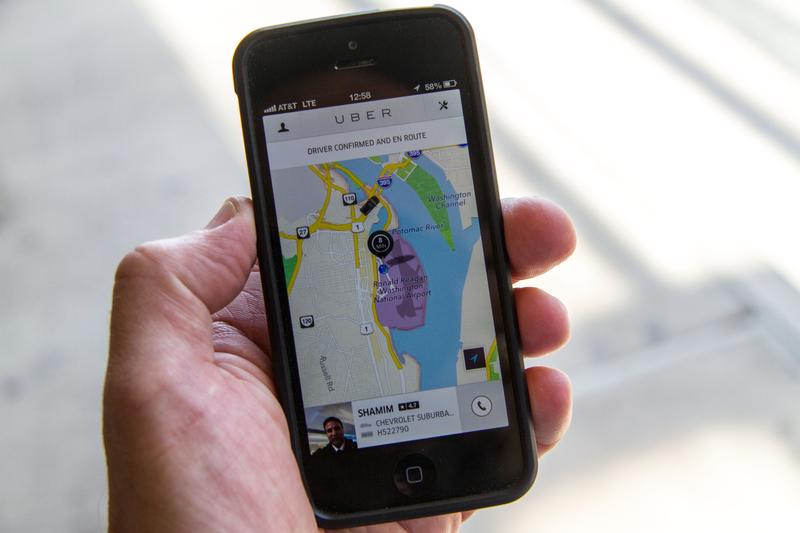 Transportation Nation
Transportation Nation
New Bill Could End Legal Limbo for D.C. Rideshare

The long-simmering controversy surrounding “ridesharing” services in Washington, D.C. may be coming to an end. D.C. Council member Mary Cheh is expected to introduce legislation today legalizing and legitimizing the app-based, on-demand transportation options that have become popular alternatives to more expensive taxicabs.
Since UberX and similar services such as Lyft and Sidecar launched in the District, the companies have been at odds with regulators. The D.C. Taxicab Commission considers them illegal. Taxi drivers contend Uber’s low-cost, low-regulation structure gives its drivers an unfair advantage, draining their customer base.
While Cheh’s bill will not please everyone, it could, if passed by the Council and signed by Mayor Gray, end the legal limbo “ridesharing” drivers have been operating in.
“We put in place a structure so they can operate, and yet we provide what we think are the basic protections, consumer protections and also safety protections, for the public," Cheh said.
What’s in the proposal?
1. New insurance requirements:
UberX drivers, who use their personal cars as discount taxis, have been on the road with their personal liability insurance policies backed up by Uber’s $1 million excess or umbrella policy. Council member Cheh said her legislation would make Uber the primary insurer as soon as the driver turns on the Uber app until it is turned off. Higher levels of coverage would be required when a passenger is in the vehicle.
Her plan is modeled after the approach taken in Colorado and resisted at first by Uber management in D.C. After extensive negotiations in the drafting of the legislation, Uber agreed to the new insurance rules.
Rachel Holt, Uber’s East Coast general manager, said that Cheh’s legislation is little different than what Uber has been offering in Washington over the past year.
“There really aren't going to be big changes,” said Holt, who added that Uber backs Cheh’s proposal. “What we are seeing is the safety standards that we have been continuing to push throughout the last year. Our policy has gotten better and better. Now what you are seeing is these really high standards being the base line and being law.”
2. Background checks:
This may be another win for Uber and the rest of the “ridesharing” competition. The tech companies successfully fought to avoid having their drivers undergo the fingerprint background checks that regular D.C. cabbies must pass. Instead, UberX, Lyft, and Sidecar drivers would have to pass a criminal background check performed by a company certified by the National Association of Professional Background Screeners based on their Social Security numbers. A new check would be performed every three years.
3. Vehicle and driver inventories:
The D.C. Taxicab Commission has argued its enforcement efforts are hampered because it does not know how many “ridesharing” vehicles are operating in Washington or the identities of the drivers. Uber does not provide such proprietary business data.
Score another win for Uber. Council member Cheh’s plan does not require that the tech companies provide updated inventories to the D.C. Taxicab Commission, whose inspectors are authorized to pull over for-hire vehicles. The inspectors are charged with stopping UberX drivers from picking up street hails, the exclusive domain of metered taxicabs.
4. Trade dress:
Hack inspectors will have an easier time identifying UberX, Lyft, and Sidecar vehicles. Cheh’s legislation mandates the vehicles display some form of trade dress, like a company emblem large enough to see at a distance. Decals will not be required. In the case of Lyft, its trademark pink moustache hanging above the front license plate would be acceptable.
Other significant provisions include:
- Only drivers licensed in D.C., Virginia, or Maryland would be allowed to serve passengers in Washington.
- “Ridesharing” vehicles and regular taxicabs would have to pass annual vehicle inspections. The current rules require that taxicabs are inspected every six months.
- UberX, Lyft, and Sidecar would have to transmit one percent of all gross receipts to the D.C. Taxicab Commission to fund its operations.
- The taxicab commission would have the authority to fine drivers found in non-compliance with the above provisions.
Cheh’s bill would allow taxicabs whose rides are e-hailed through an app, like Hailo or MyTaxi, to charge different rates than the standard, metered fare of $3.25 base plus $2.16/mile.
The D.C. Taxicab Commission is unhappy. Commission chairman Ron Linton issued a statement that the bill is flawed.
“I believe the legislation would create a situation that anyone who uses the service being established endangers their personal safety and puts themselves at risk for consumer fraud,” Linton said.